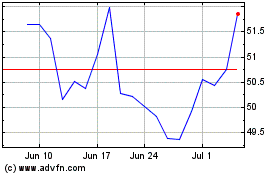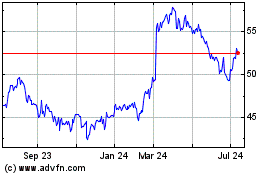Notice of Exempt Solicitation
NAME OF REGISTRANT: THE KROGER COMPANY
NAME OF RELYING ON EXEMPTION: SISTERS OF ST. FRANCIS OF PHILADELPHIA
ADDRESS OF PERSON RELYING ON EXEMPTION: 609 S. CONVENT ROAD, ASTON,
PA 19014
Dear Fellow Kroger Company Shareholder,
The Sisters of St. Francis of Philadelphia seeks your support for Proposal
4 on the Kroger Company (“Kroger”, or “the Company”) 2024 proxy ballot. The resolved clause states:
RESOLVED, shareholders ask that the board commission
and disclose a report on the external public health costs created by the sale of tobacco products by our company (the “Company”)
and the manner in which such costs affect the vast majority of its shareholders who rely on overall market returns.
We are the lead filers of this proposal, which has been co-filed by
other concerned investors, including the Sisters of Charity of St. Elizabeth, NJ, Sisters of the Humility of Mary, OH, CommonSpirit Health,
Bon Secours Mercy Health, Congregation of St. Joseph, OH, Mercy Investment Services, and Trinity Health.
Our Rationale to vote FOR and Rebuttal to the Company’s Opposition
Statement follows:
As investors, we expect companies in our holdings to align their operations
with their stated mission and vision. Investments made with a company, while certainly influenced by financial considerations, can also
include factors such as good will, sustainability, transparency, and mission alignment.
The Kroger Company operates 2,750 grocery retail stores under
a variety of banner names, as well as 170 jewelry stores, 35 food production or manufacturing facilities producing private-label
products, and 1,585 supermarket fuel centers. Additionally, the company operates 2,200 pharmacies, in 35 states and 220 clinics in 9 states,
located in their combination food and drug stores.1
Kroger Health, a division of The Kroger Company, has committed its resources to improve the general health of the communities they serve,
saying “Our vision is to help people live healthier lives, and our mission is to improve health outcomes with simplified solutions
that combine health, wellness and nutrition.”2
Their team of 24,000 healthcare practitioners include pharmacists, nurse practitioners, dietitians and technicians “helping people
live healthier lives.”
1
https://ir.kroger.com/news/news-details/2024/Kroger-Health-Announces-Continued-Inclusion-in-Centenes-Pharmacy-Network/default.aspx
2 https://www.krogerhealth.com/
At the top of the Kroger family of companies is the Kroger Company,
which offers numerous products and services to assist with healthy eating and living, including a staff of registered dieticians to offer
advice, their OptUP app to help customers choose healthy foods, diabetes management, and tele nutrition.3
Despite the company’s prioritization of health in their printed
words and actual operations, and despite their efforts in fusing of their health, wellness, and nutrition programs, Kroger continues to
sell cigarettes and other tobacco products in their stores.
Tobacco is a uniquely destructive
product.
Cigarette smoking is the cause of more than 480,000 deaths each year
in the United States. In fact, more than 10 times as many Americans have died prematurely from smoking than from as wars fought by this
country.4
The World Health Organization (WHO) developed the Framework Convention
on Tobacco Control in 2003 to “protect present and future generations from the devastating health, social, environmental and economic
consequences of tobacco consumption and exposure to tobacco smoke.”5
Currently, 138 countries and territories, representing 66.5% of the world's population, require picture health warnings on cigarette packages,
while 42 countries and territories are actively moving ahead with plain packaging. “Plain packaging includes health warnings on
packages and prohibits tobacco company branding such as colours, logos and design elements.”6
According to the Center for disease Control and Prevention (CDC), “Smoking
harms nearly every organ of the body and affects a person’s overall health, including weakening of bones, teeth and gum health,
promotes diabetes mellitus, decreased immune function, and can contribute to the onset of cataracts and rheumatoid arthritis.7
As stated in “The Public Health Impact of Tobacco” by Dr.
Prakash C. Gupta of the Tata Institute of Fundamental Research, health professionals, such as pharmacists, play a role in keeping the
public safe from the harms of tobacco, stating “Health professionals need to take on an active supportive role in helping individuals
and communities stop smoking and chewing tobacco and advocate for legislation to protect children and the general public from environmental
tobacco smoke. Only then will this scourge of humanity stop taking its toll.”8
3
https://www.kroger.com/health/info
4
https://www.cdc.gov/tobacco/data_statistics/fact_sheets/health_effects/effects_cig_smoking/index.htm
5
https://iris.who.int/bitstream/handle/10665/42811/9241591013.pdf?sequence=1
page 5
6
https://www.prnewswire.com/news-releases/tobacco-plain-packaging-progress-continues-worldwide-with-42-countries-and-territories-moving-forward-with-regulations-302053876.html#:~:text=The%20report%20reveals%20there%20are,picture%20health%20warnings%20in%202001.
7
https://www.cdc.gov/tobacco/data_statistics/fact_sheets/health_effects/effects_cig_smoking/index.htm
8
https://www.jstor.org/stable/24105879?read-now=1&seq=1#page_scan_tab_contents
Current Science, Vol. 81, #5, pp. 475-481
The market for cigarettes is shrinking.
Although cigarette smoking remains the leading cause of preventable
disease and death in the United States and cost the United States more than $600 billion in 2018, including more than $240 billion
in healthcare spending and nearly $372 billion in lost productivity9,
smoking rates continue to fall. Consumption has steadily declined from 42.6% in 196510
to 11.5% in 2021.11 In dialogues with shareholders
from the Interfaith Center on Corporate Responsibility (ICCR), Kroger team members have not shared sales figures for tobacco products.
However, with smoking rates decreasing, logic suggests that sales of cigarettes have and will continue to drop.
Cigarette use rates should continue to decline in the United States,
as states have found that increasing taxes on tobacco products has been an effective population-based strategy for decreasing smoking.12
Additionally, numerous states, cities, and municipalities have passed restrictions on smoking in government buildings, private businesses,
restaurants, and bars.13 Even manufacturers
of cigarettes, such as Altria Group14, as well
as retailers that feature pharmacy businesses like Walgreens15
and Walmart16 that sell combustible tobacco
products offer smoking cessation assistance, reflecting the ambivalence of these companies’ investment in this deadly merchandise.
The reputational risk of selling this product is real
The risk of Kroger selling a product that not only addicts, destroys
the health, and kills the user, but does so while promoting itself as a company that promotes good health is substantial. In Kroger Health’s
Purpose, Vision, Mission statement, they announce “We strive to feed the human spirit and help people live healthier lives with
everything we do. Our company mission is to improve outcomes by creating solutions that combine health, wellness, and nutrition, while
connecting with people on an emotional and personal level.”17
“In everything we do” belies their promotion and sale of cigarettes, a product that offers nothing but negative outcomes and
satisfies only needs it creates through its addictive properties.
For decades, the American Pharmacists Association has opposed the sale
of tobacco products in pharmacies, and as far back as 2012, a study found that more than 75% of pharmacists who responded support legislation
banning the sale of tobacco products in pharmacies. Over 86% of respondents would prefer to work in a pharmacy that does not sell tobacco
products.18 The American Heart Association19
and the American Lung Association, 20 also
support eliminating tobacco sales in retail outlets that contain pharmacies. Moreover, a 2016 study of customer attitudes toward tobacco
sales in pharmacies found that 66.1% of U.S. adults favor prohibiting tobacco sales in retail pharmacy stores, including 46.5% among current
cigarette smokers.21
9
https://www.cdc.gov/tobacco/campaign/tips/resources/data/cigarette-smoking-in-united-states.html
10
https://www.lung.org/research/trends-in-lung-disease/tobacco-trends-brief/overall-tobacco-trends
11
https://www.cdc.gov/tobacco/campaign/tips/resources/data/cigarette-smoking-in-united-states.html
12
Effects of Tobacco Taxation and Pricing on Smoking Behavior in High Risk
Populations: A Knowledge Synthesis - PMC (nih.gov)
13
State
Laws Prohibiting Smoking in Government Buildings, Private Workplaces, Restaurants and Bars (lung.org)
14
Supporting Cessation - Altria
15
Quit Smoking Answers | Health Answers | Walgreens
16
walmart.cravingtoquit.com
17
https://www.kroger.com/health/about#:~:text=We%20strive%20to%20feed%20the,an%20emotional%20and%20personal%20level.
18
https://bmcresnotes.biomedcentral.com/articles/10.1186/1756-0500-5-413#:~:text=In%201971%2C%20the%20American%20Pharmacists%20Association%20%28APhA%29%20House,keep%20smoking%20cessation%20a%20priority%20%5B%2021%20%5D.
19
https://www.heart.org/-/media/Files/About-Us/Policy-Research/Policy-Positions/Tobacco-Endgame/eliminating-tobacco-sales-in-pharmacies-UCM_467508.pdf
20
https://www.lung.org/policy-advocacy/public-policy-positions/public-policy-position-tobacco#:~:text=The%20American%20Lung%20Association%20supports%20efforts%20to%20reduce,of%20all%20tobacco%20products%20at%20retailers%20with%20pharmacies.
21
https://www.ncbi.nlm.nih.gov/pmc/articles/PMC5118143/
According to a 2019 study found in the National Library of Medicine,
“Pharmacies that sell tobacco are also more likely to encourage its use; tobacco prices are lower in pharmacies relative to other
stores, and chain pharmacies are more likely than independents to stock tobacco products and sell them to minors.22
The study also found that that only 2% of pharmacists favor the sale of tobacco, while there is widespread public support for tobacco-free
pharmacies.
In addition to selling cigarettes and other tobacco products, offers
for sale a wide variety of smoking cessation products, including a “value pack” of Nicorette gum for $73.99.23
Retail outlets that contain pharmacies and publicly promote themselves as champions of healthy living are callously and cynically profiting
from both the disease and the cure.
A company or industry’s reputation is harmed by the sale of age-restricted
products, like tobacco, to underage customers. Kroger was among the retailers, including others that contained pharmacies, that were publicly
criticized by the U.S. Food and Drug Administration (FDA) for “repeatedly selling tobacco products to minors in violation of federal
law”.24
Conversely, corporate goodwill is built through actions that benefit
customers, workers and the general public. As a result of CVS Health’s decision to eliminate tobacco from its stores in 2014, the
company received praise from the American Cancer Society25,
President Barack and First Lady Michelle Obama26,
the American Medical Association, the American College of Pediatrics, the American College of Physicians, the American Academy of Family
Physicians and other medical societies.2728
Proposal Ask
The proponents are simply requesting a report on the external public
health costs created by the sale of tobacco products. We are not asking the company to reshape its portfolio of products, but only to
educate itself on the risks to shareholder value, as well as the health of their customers and the public.
22
https://www.ncbi.nlm.nih.gov/pmc/articles/PMC6588971/#:~:text=Tobacco%20is%20the%20leading%20preventable%20cause%20of%20death,in%20low-income%20and%20middle-income%20countries%20%28LMICs%29.%2012%2013
23
https://www.kroger.com/pl/smoking-cessation/22016
24
https://www.nytimes.com/2019/03/04/health/tobacco-cigarettes-minors-walgreens.html
25
https://www.fightcancer.org/news/acs-can-presents-award-cvs-health-removing-tobacco-products-its-stores
26
https://www.nbcnews.com/health/health-news/so-long-cigs-michelle-obama-praises-cvs-pulling-tobacco-n22156
27
https://www.fiercehealthcare.com/practices/physicians-react-to-cvs-anti-tobacco-move
28
https://www.cbsnews.com/news/medical-community-rallies-behind-cvs-decision-to-stop-tobacco-sales/
A study conducted by CVS Health following the company decision to discontinue
the sale of tobacco products found that by eliminating some outlets for people to purchase these items, cigarettes purchased nationwide
were impacted. They found “While the Company's decision reduced cigarette purchases across all retail settings, those who purchased
cigarettes exclusively at CVS Pharmacy were 38 percent more likely to stop buying cigarettes, and those who purchased three or more packs
per month were more than twice as likely to stop buying cigarettes altogether.”29
The data confirmed there was indeed a public health impact as a result of their decision on tobacco.
Proponents encourage all Kroger Company shareholders to support Proposal
4, requesting the Board of Directors commission and disclose a report on the external public health costs created by the sale of tobacco
products by our company and the manner in which such costs affect the vast majority of its shareholders who rely on overall market returns.
For more information, please contact me, as noted below.
Sincerely,
Tom McCaney
Director, Corporate Social Responsibility
Sisters of St. Francis of Philadelphia
tmccaney@osfphila.org
29
https://www.cvshealth.com/news/community/cvs-health-research-institute-study-confirms-companys-tobacco-re.html
Kroger (NYSE:KR)
Historical Stock Chart
From May 2024 to Jun 2024

Kroger (NYSE:KR)
Historical Stock Chart
From Jun 2023 to Jun 2024
